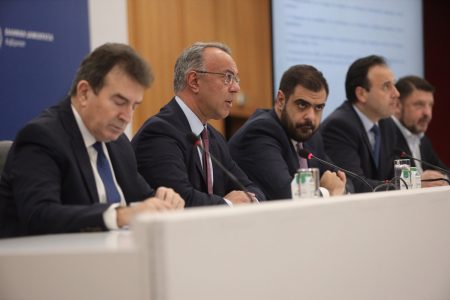President Xi Jinping’s expected reappointment for a third five-year term as head of the Chinese Communist Party and the military is set to be a watershed moment in China’s modern history. As with Deng Xiaoping’s launch of economic reforms in 1979 and his decision a decade later to crush pro-democracy protests with force, it will — for better or worse — radically alter the country’s course.
The party’s 20th congress opens in Beijing on Sunday and will bring together more than 2,000 delegates from across the country. It will close a week later with the unveiling of the party’s new leadership, which is set to again be headed by Xi. In doing so, the congress will bring down the curtain on a two-decade period defined by predictable and orderly transitions from one party leader to another.
Besides reaffirming Xi as the party’s paramount leader and head of its powerful Central Military Commission, which controls China’s armed forces, the congress will unveil a new central committee comprised of about 200 full members and 170 alternates, a 25-member Politburo and a seven-person Politburo Standing Committee.
Will Xi be reappointed president?
Not yet. State positions, including president and premier, will not be made official until March, at the annual session of China’s parliament, the National People’s Congress. But the head of the party is typically appointed president. The party’s second-highest ranking member usually, but not always, serves as premier.
Xi is widely expected to be reappointed to a third term as the party’s top leader, or general secretary, although it is also possible he could resurrect and assume the title of party chair, which was discontinued in the early 1980s by Deng.
How is this year’s congress different from previous ones?
In taking a third term as party leader, Xi will formally scrap the system credited for the orderly leadership transitions of 2002 and 2012. In 2002, Hu Jintao succeeded Jiang Zemin as party general secretary. In 2012, Hu made way for Xi.
Xi set the stage for this month’s power grab at the 19th party congress in 2017, when he did not appoint a next-generation president to the Politburo Standing Committee. Both Jiang and Hu had done so five years before they relinquished power.
In March 2018, the NPC all but announced Xi’s intention to stay on for at least a third term, if not for life, when it scrapped the constitutional two-term limit on the presidency. There is no such term limit on the positions of party general secretary and military chief.
How many members of the Politburo Standing Committee will step down?
At least two. For everyone but the party leader, an unofficial retirement age applies to the Politburo Standing Committee. Anyone aged 68 or older cannot be reappointed to the body.
Four PSC members, including Premier Li Keqiang, will be 67 or younger, and therefore eligible for another five-year term. It is possible, however, that Xi could lower the age limit to 67 to replace Li — or simply orchestrate the removal of anyone he does not want in order to promote more allies to the committee.
Does that mean Li could serve a third term as premier?
No. Unlike the presidency, the premiership is still subject to a two-term limit.
If Li remains on the Politburo Standing Committee, he would probably retain his ranking as the party’s second most senior official, but would have to take on another government role, most likely to be head of the parliament.
So who will be China’s next premier?
This will not be known with certainty until he (it has never been a she) is formally appointed at the NPC in March. But if Li stays on the standing committee, its third-ranking member would be the most likely to succeed him as premier. If Li steps down, whomever replaces him as its second-highest ranking member will probably become China’s premier-in-waiting.
At present, Wang Yang, the party’s fourth highest ranking official, is considered the frontrunner to replace Li. Another contender is vice-premier Hu Chunhua, who currently sits on the politburo but not the standing committee.
Who are the others to watch?
With the exception of Xi, a Chinese leader’s official party rank is not an indicator of his real clout. Li, for example, has been a remarkably weak premier despite his number-two party rank.
During Xi’s first term as party leader from 2012 to 2017, the second most powerful man in China was clearly Wang Qishan, who managed Xi’s anti-corruption campaign but was ranked sixth in the party hierarchy.
One critical position to watch is who emerges as the head of the party’s Central Political and Legal Affairs Commission, which oversees China’s vast internal security apparatus.
Leading candidates for this post include two officials who worked closely with Xi two decades ago when he was climbing up the ranks in Fujian and Zhejiang provinces: Chen Yixin, who is currently the commission’s secretary-general, and Wang Xiaohong, who was appointed head of China’s public security ministry in July.
Source: Financial Times


